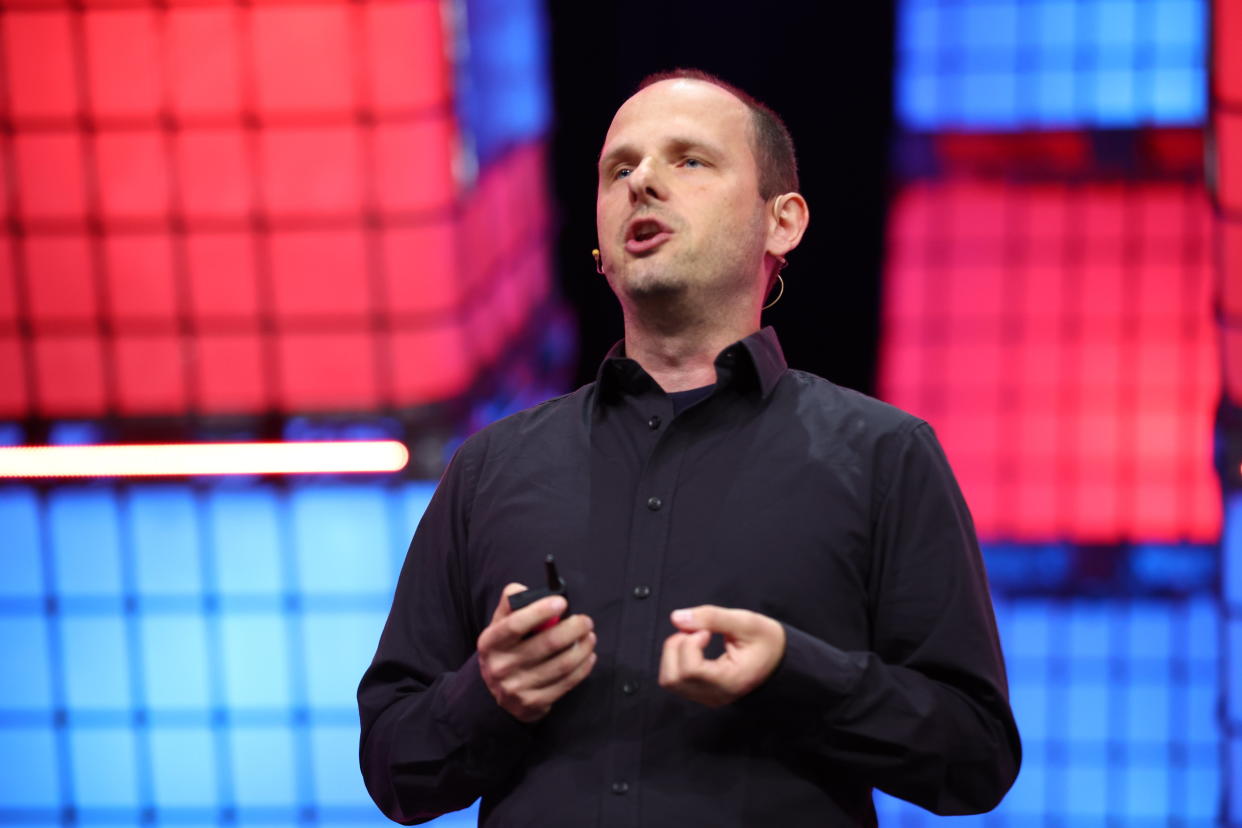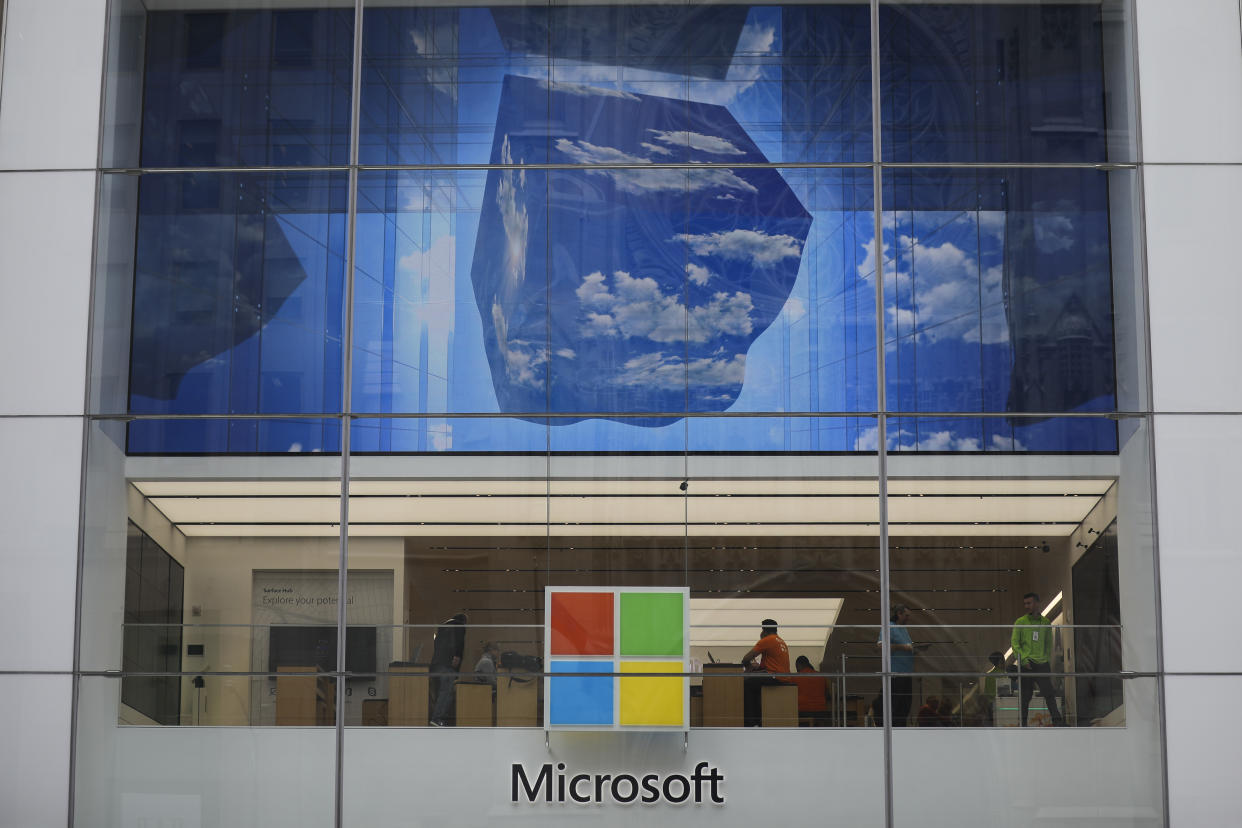Q&A: GitHub CEO Thomas Dohmke talks AI, supercharging productivity, and the future of software
GitHub CEO Thomas Dohmke is right on the front line of artificial intelligence.
GitHub, a software development platform, has been leading the charge in a key area that generative AI will completely transform. The company, which Dohmke has helmed since 2021, has been collaborating with ChatGPT-maker OpenAI to build a coding-specific AI chatbot called Copilot, which launched for developers in 2020.
GitHub was acquired in 2018 by Microsoft (MSFT) in a stock deal valued at $7.5 billion.
Yahoo Finance caught up with Dohmke to talk about AI and where it's headed, along with the economic impact he's expecting to see from the technology.
This interview has been edited for length and clarity.

You've described it as a 'high energy' time in tech. Let me guess, is it AI-related?
There have been a number of moments in the AI space in the last year that have changed how people are thinking about our industry and, quite frankly, every professional worker. If you zoom out, most companies today are software companies, and, in some form, writing software is a normal part of their business, whether it's internal applications, applications that are consumer-facing, or in business contexts.
The world has opened up around us, where company leaders, CEOs, CTOs, CIOs, and everyone across all titles [are] asking themselves: How can I use generative AI to make my company more productive, to change my business processes? How do we make sure we're not left behind [in] this rapid increase in productivity? ... We actually did research to show that developers [who] use Copilot are up to 55% faster. That's a massive productivity increase and probably one of the first use cases for AI, where a whole sector's workforce becomes more productive through adopting AI.
What role would you say GitHub plays in the tech ecosystem, and where does AI fit into that?
GitHub is now over 15 years old and was founded on the premise of building tools for developers. ... Today, the platform is the place on the internet where developers meet, collaborate, and build software together. There's the whole open-source ecosystem, millions of developers around the world that are working together to build open-source libraries, open-source operating systems, and open-source tools. If you look at commercial applications, 90% of their stack is likely composed out of open-source components.
The question is how do we make developers more productive? How do we enable them to collaborate, build, and ultimately be happy? I have the strong belief that developers need to be happy to be creative, as writing software is a very creative process. There isn't one single answer of how to do something. There are many paths you can take.
GitHub has always been looking to make developers more efficient. Is it fair to say that AI has supercharged that?
It has drastically supercharged software development because of the impact that Copilot has on writing code. If you think about it, developers spend most of their day editing, so that's where value is created. ... Copilot lets them stay in that flow and lets them solve the problem much quicker.
Software development is such an iterative process. It doesn't actually matter that you sometimes are getting incomplete code. I'm used to writing buggy code myself, and that's part of how this works. ... We all know these models aren't perfect. It's actually not a big deal, because the developer is in charge.
I have a joke with a friend that goes something like, "My AI will talk to your AI." How far does all this go?
At the end of the day, I think it will be the human's choice of how much AI they want to use [and] how many tools they want to use — whether you want to do the dishes manually or use the dishwasher. I'm not saying the dishwasher has AI, but it's a nice metaphor. Most kitchens now have a dishwasher because we don't consider washing the dishes with our hands [as] necessarily an activity that brings us joy.
There are a lot of things where computers have made our lives better and we clearly communicate in ways that were unimaginable 30 years ago. But at the same time, I think it has added still another layer of complexity that isn't actually necessary. ... I'm incredibly optimistic that generative AI is this next big thing, similar to what the internet and the PC [were] in the '80s and '90s.
Turning to the present, GitHub has seen substantial uptake among customers on Wall Street, right?
We have seen tremendous uptake across all industries and especially the financial services industry. Companies like Fidelity are at the forefront of the adoption of modern software development tools. Those companies understand very well that they need to stay ahead in the competition of innovation. ... It's quite easy to move your bank account to another bank if the software experience your financial services institution provides to you is no longer state of the art.
On the other side, financial services institutions also understand that software has been a big part of their journey for the last 60, 70, 80 years. In fact, many banks are talking to me about a programming language called COBOL [Common Business Oriented Language] that was invented during the Eisenhower era. ... It just works, but it's heavily regulated, so it's hard for these institutions to just leave all of this behind and translate it into a modern programming language. ... Developers call this tech debt. ... It's just a natural part of the software development lifecycle.
It makes me wonder if AI will make the software development cycle shorter at all these institutions.
It'll make it shorter in the sense that it takes less time to implement the same changes and features with AI. That's the polarity, if you will: Introducing AI makes you faster, building the same thing in a shorter amount of time. It will also help developers to manage and maintain all that existing code [by] looking at it, analyzing it, finding security vulnerabilities, finding mistakes.
What's your take on managing AI’s risks even amid massive growth?
There are two sides to this at Microsoft and GitHub. We're committed to building AI in a responsible way. We have programs around making sure the models are safe, secure, and follow ethical guidelines. So we're making sure that when we're building these tools, they follow the premises of responsible AI.
Then, on the user side, we're helping users understand how to use these tools. There's a training aspect to all this, and we've also built in GitHub what's called the DevOps toolchain. ... When you write code today as a developer, there's zero chance that you can take that code and deploy it without any checks and balances. Most companies, small and large, have established processes. ... So we have already these quality gates in place that help us to leverage AI to its fullest potential, making sure that whatever mistakes that I make are caught in the DevOps process.

All right, a quick lightning round. As a kid, what did you want to be when you grew up?
I always wanted to be a software developer. But if that plan failed, I would have become a physicist. I guess, I would have become a nerd no matter what.
Do you have a favorite piece of science fiction? It can be a book, movie, or video game.
"Story of Your Life," by Ted Chiang. I hear he lives in Seattle. I’d love to meet him someday.
What is your favorite and least favorite coding language?
Ruby on Rails is my favorite! I do have a least favorite, but I’ll keep that to myself.
What does the future of AI look like?
What we will soon realize is what we were always destined to achieve since the advent of the personal computer: Humankind will be inextricably linked to a machine that operates with us, by us, and for us. [It will be] an age of AI-enabled life that will accelerate human productivity and progress to the order of a magnitude — but only if we embrace it.
Allie Garfinkle is a Senior Tech Reporter at Yahoo Finance. Follow her on Twitter at @agarfinks and on LinkedIn.
Click here for the latest technology news that will impact the stock market.
Read the latest financial and business news from Yahoo Finance
